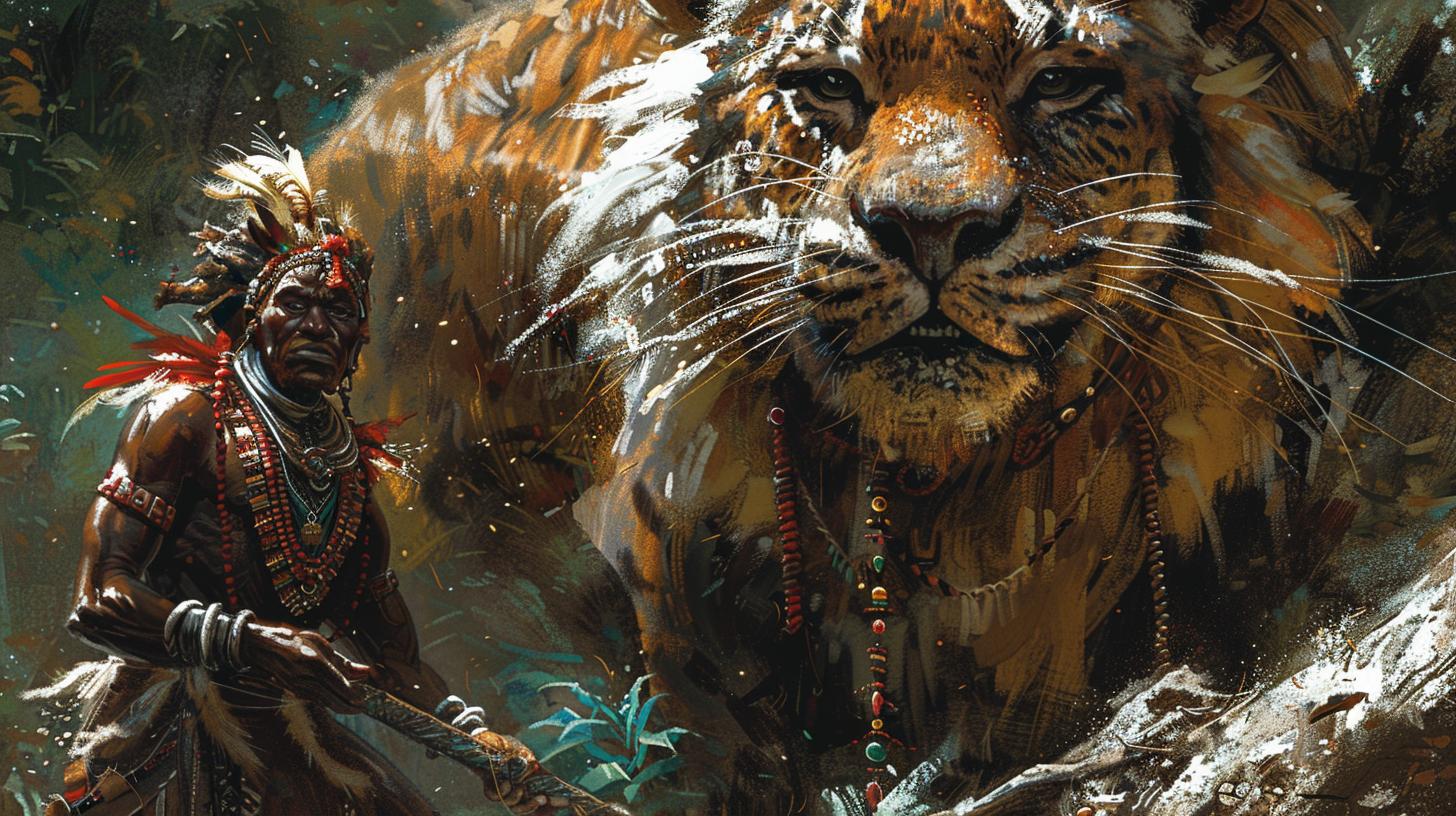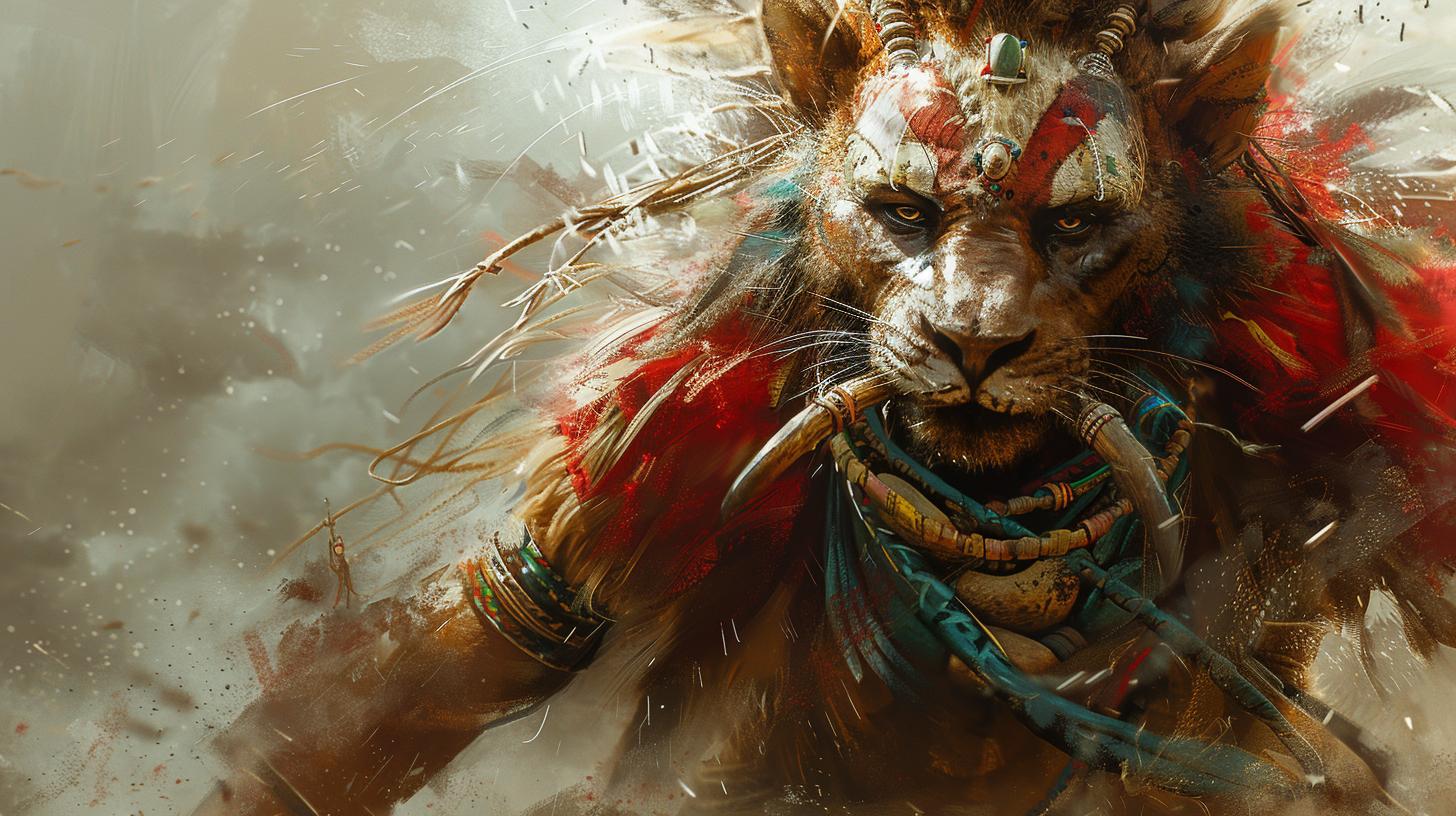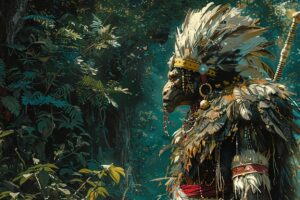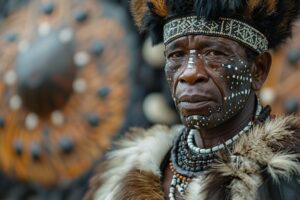Uhlakanyana Mythology God: A Mysterious Deity of Xhosa and Zulu Mythology
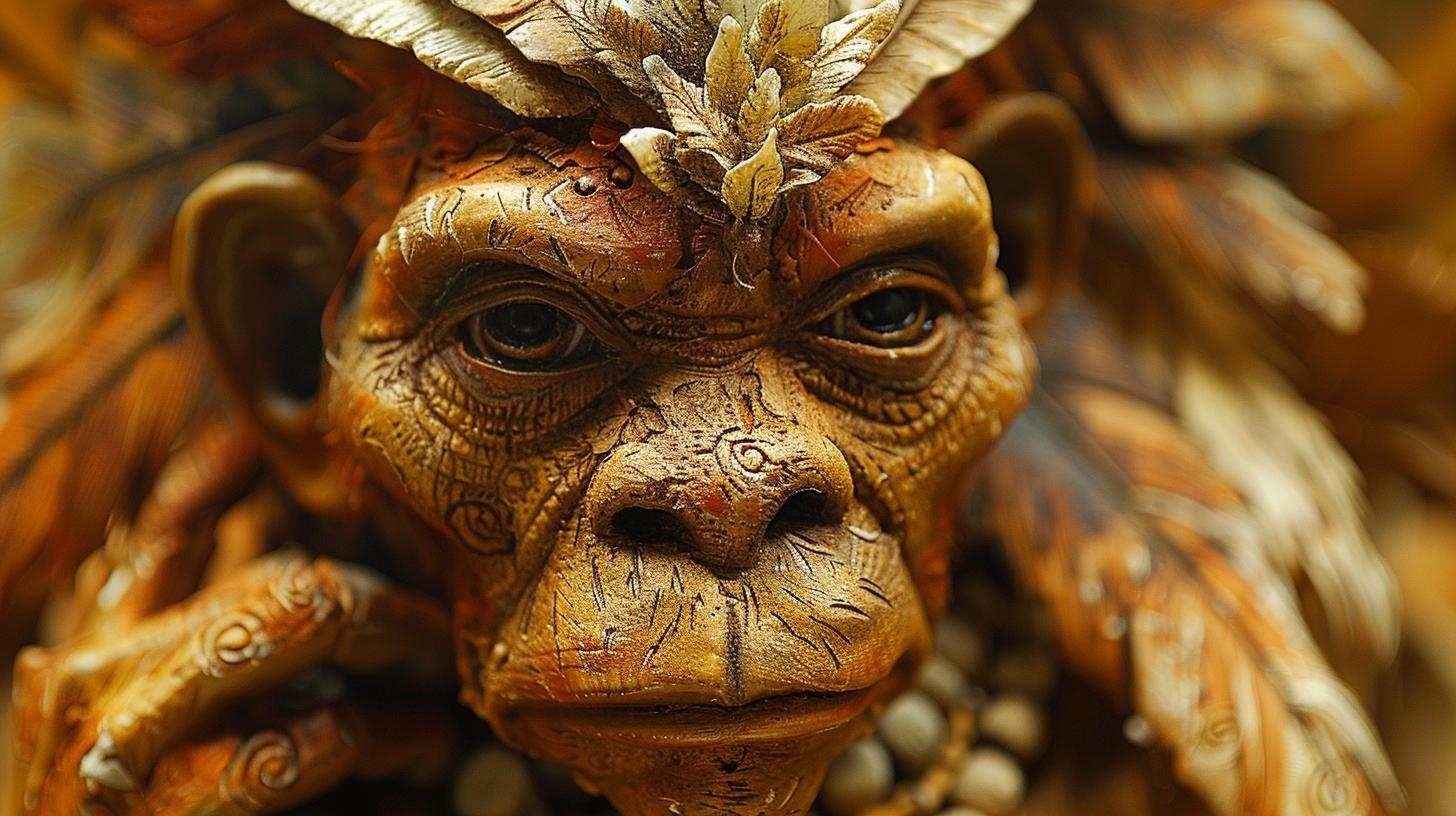
Uhlakanyana is a mysterious deity in Xhosa and Zulu mythology. He is known for his cunning and mischievous nature, with the ability to change form and deceive others.
In Xhosa mythology, he is portrayed as a trickster figure, while in Zulu mythology, he is seen as a malevolent entity. Despite varied interpretations, Uhlakanyana’s legacy continues to captivate and intrigue within African folklore.
Overview of Uhlakanyana Mythology
Uhlakanyana is a captivating figure in Xhosa and Zulu mythology, known for his cunning and mischievous nature. This deity is shrouded in mystery and folklore, with stories passed down through generations.
Origins and Background
Uhlakanyana’s origins are steeped in legend, with tales of his supernatural birth and unique abilities. His background reveals a complex character, embodying both trickery and wisdom.
Cultural Significance
In Xhosa and Zulu cultures, Uhlakanyana holds a prominent place in mythology, serving as a cautionary tale and a symbol of resilience. His presence in folklore speaks to the cultural values and beliefs of the Xhosa and Zulu people.
Uhlakanyana in Xhosa Mythology
In Xhosa mythology, Uhlakanyana is a cunning and mischievous figure whose tales are deeply intertwined with the cultural fabric of the Xhosa people. The stories surrounding Uhlakanyana’s birth, his penchant for mischief and deception, as well as his supernatural abilities, serve as captivating elements of Xhosa folklore.
The Birth of Uhlakanyana
- Uhlakanyana is believed to be the son of the last wife of a village chief in Xhosa mythology.
- His birth was surrounded by intrigue and supernatural occurrences, marking him as a figure of great significance within the community.
Mischief and Deception
- Uhlakanyana’s exploits often revolve around trickery and deception, leading to chaos and confusion among the villagers.
- His pranks and hoaxes frequently result in unintended consequences, highlighting his mischievous nature.
Supernatural Abilities
- Uhlakanyana is endowed with supernatural powers, such as shape-shifting and the ability to assume different forms.
- His ability to transform and trick others showcases his formidable and enigmatic nature.
Uhlakanyana in Zulu Mythology
Within Zulu mythology, Uhlakanyana is depicted as a cunning trickster figure, known for his deceitful nature and mischievous acts that often lead to chaos and repercussions among the people.
Uhlakayana as a Trickster Figure
Uhlakanyana is revered as a master of deception and trickery in Zulu folklore. His cleverness and ability to outwit others make him a formidable yet unpredictable entity within the mythology.
Malicious Deeds and Moral Lessons
Through his malicious deeds, Uhlakanyana teaches moral lessons to the Zulu people, often exposing their weaknesses and vulnerabilities through his cunning schemes.
Perceptions and Folklore Surrounding Uhlakanyana
- Zulu folklore portrays Uhlakanyana as a malevolent being, whose actions are driven by selfish desires and a disregard for the well-being of others.
- Legends surrounding Uhlakanyana emphasize the consequences of deceit and the importance of remaining vigilant in the face of cunning adversaries.
- His enigmatic nature and supernatural abilities continue to captivate and intrigue those who study Zulu mythology.
Comparison Between Xhosa and Zulu Interpretations
In exploring the depictions of Uhlakanyana in Xhosa and Zulu mythology, we encounter divergent portrayals that highlight the distinct cultural lenses through which this enigmatic deity is viewed.
Divergent Portrayals of Uhlakanyana
- Xhosa mythology tends to present Uhlakanyana as a mischievous yet neutral figure whose actions can be seen as playful rather than malevolent.
- On the other hand, Zulu mythology paints Uhlakanyana in a more sinister light, portraying him as a malicious entity who delights in causing chaos and harm.
Similarities and Differences in Stories
While both Xhosa and Zulu mythologies feature Uhlakanyana, the stories surrounding him diverge in significant ways, reflecting the unique cultural beliefs and values of each tradition.
- Xhosa tales often emphasize Uhlakanyana’s cunning and trickster nature, showcasing his ability to outsmart others through clever deception.
- In contrast, Zulu narratives focus on Uhlakanyana’s propensity for causing harm and sowing discord, suggesting a darker and more malevolent characterization.
- Despite these divergences, both mythologies underscore Uhlakanyana’s supernatural abilities and enduring presence in African folklore.
Uhlakanyana’s Powers and Attributes
Uhlakanyana, the enigmatic deity in Xhosa and Zulu mythology, is known for possessing extraordinary powers and unique attributes that set him apart from other mythological figures.
Here, we delve into the shape-shifting abilities and dual nature that define Uhlakanyana’s essence.
Shape-Shifting Abilities
One of the most captivating aspects of Uhlakanyana is his remarkable ability to transform his appearance at will, taking on different forms to suit his mischievous intentions. Whether assuming the guise of a comadreja or a cunning trickster, Uhlakanyana’s shape-shifting prowess adds a layer of intrigue to his character.
Trickster Transformations
- Capable of morphing into various animals and humans
- Uses shape-shifting to deceive and outwit his adversaries
- Mysterious transformations often lead to unexpected outcomes
Mystical Beings
- Legends depict Uhlakanyana as a master of disguise
- Shape-shifting abilities used for both playful pranks and malevolent deeds
Dual Nature of Uhlakanyana
Uhlakanyana’s character is marked by a duality that blurs the lines between good and evil, embodying both light and dark aspects simultaneously. This complex nature adds depth to his persona, making him a multifaceted deity with conflicting qualities.
Neutral Intentions
- Perceived as neither wholly benevolent nor purely malevolent
- Actions driven by a mix of mischief and curiosity
- Ambiguous nature keeps mortals guessing about his true motives
Eternal Return
- Despite being vanquished in tales, Uhlakanyana is rumored to always revive
- Immortality tied to his enigmatic powers and supernatural abilities
The Legacy of Uhlakanyana
The legacy of Uhlakanyana, the mischievous deity of Xhosa and Zulu mythology, is deeply ingrained in African culture and folklore, leaving a lasting impact on the traditions and beliefs of the region.
Cultural Impact
Uhlakanyana’s presence in African mythology has influenced various aspects of culture, from storytelling traditions to artistic representations. His trickster nature serves as a cautionary tale and a reminder of the complexities of human nature.
Influence on Traditional Practices
- Uhlakanyana’s stories are often used to impart moral lessons and teach children about the consequences of deceit and trickery.
- His character is sometimes invoked in rituals or ceremonies to ward off evil spirits or bring luck.
Folkloric Influence
The tales of Uhlakanyana have been passed down through generations, enriching the tapestry of African folklore with his cunning exploits and shape-shifting abilities.
His legacy continues to captivate audiences and spark imagination.
Integration into Modern Narratives
- Contemporary storytellers draw inspiration from Uhlakanyana’s adventures, adapting them to resonate with modern audiences.
- Books, films, and other forms of media often feature references to Uhlakanyana, keeping his legacy alive in popular culture.
Uhlakanyana in Contemporary African Mythology
In modern times, Uhlakanyana continues to captivate the imagination of individuals across Africa with his intricate and enigmatic character.
As interpretations evolve and adapt to contemporary contexts, Uhlakanyana remains a prominent figure in African folklore.
Modern Interpretations
Contemporary storytellers and artists often reinterpret Uhlakanyana’s adventures and deeds through various mediums, such as literature, theater, and visual arts. These modern iterations bring a fresh perspective to his mischievous nature and supernatural abilities.
Relevance and Resonance
Uhlakanyana’s stories still hold relevance in present-day society, serving as cautionary tales about deception, trickery, and the consequences of one’s actions. His dual nature and shape-shifting abilities continue to fascinate audiences, highlighting the enduring resonance of his character in contemporary African mythology.
.

